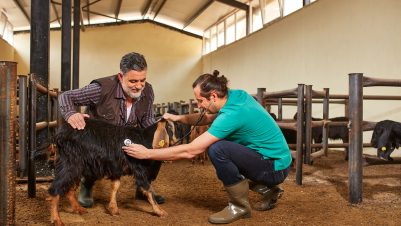It is difficult to say what makes a practice. There are so many contributing factors. Buildings, staff, clients, leadership, equipment, ownership: they are all a part of it. Then there are intangibles like history, morale and ethos. No doubt that without good morale you will struggle to have a great practice. Without a reasonable environment even the best staff will struggle. Ethos may be a formal statement or a product of leadership and history. It is a slippery thing to control and an even harder thing to bring right when it’s gone off the rails.
One comment about running a practice that has stuck with me came from one of my previous bosses when they found out I was leaving. One boss was, of course, gutted I was leaving (it’s my anecdote so of course they were gutted). Part of her dismay was that I was going, as an individual. I had been useful in the place, but the bigger part of her sadness verging on anger was that she had spent the last four years building up the place and just got it how she wanted it; now the head vet was going and she had to start again. Her partner was much more philosophical about it: “It’s an organic thing,” he said. “A practice grows and changes. It never stays still. It changes and adapts.”
This has stuck with me and has been a source of solace when things appear to be going wrong. There have been times where things have seemed to suddenly have taken a turn for the worse. I won’t give details but there have been several times when things have been taken out of our hands regionally and we have been left looking at a very much worse short-term future (this is not about COVID, that’s a story yet to finish). We have adapted and usually grown in the face of adversity. Things that set us back have turned out – in the long run and with much stress, effort and time – to be in fact the stepping stone to something much better. If “that” hadn’t happened, we wouldn’t have done the next thing and we wouldn’t be here now in a much better place. It often takes a period of adversity to force change that, if guided and nurtured, will turn out to be change for the better.
Then there are also those moments that come out of the blue and present an opportunity. For example, a vague plan to expand the practice may be suddenly sprung into action by driving past a field with a for sale sign in it. Your most useful member of staff may be there because of a chance encounter or a CV through the post. My favourite recent moment of serendipity happened last year. A receptionist handed in her notice. She hadn’t been with us long but was very good. We were all a bit down about it. Then, the same day, a CV got handed to me in the office by someone who we knew and was looking for a receptionist job. She’s been with us a year and is excellent.
For the new year I will leave you with the parable of the Chinese farmer. There are different versions with more stages, but you will get the gist. It has quite a passive role for the main character which is something I don’t recommend for running a practice. What it does do is show that it can be hard to tell the difference between good and bad news in the present moment. Only time will tell.
It goes something like this:
A poor farmer has one very good horse. One day the horse escapes and runs away.
“How unfortunate,” say his neighbours.
“Good news, bad news, it is hard to tell,” replies the farmer.
A few weeks later the horse returns along with several wild horses.
“How fortunate,” say his neighbours.
“Good news, bad news, it is hard to tell,” replies the farmer.
The farmer and his son set about taming the wild horses. In the process, the son badly breaks his leg and is left crippled.
“How unfortunate,” say the neighbours.
“Good news, bad news, it is hard to tell,” replies the philosophical farmer.
Shortly after this, the Chinese imperial army run into the village and enforce conscription on all the young men. They are all sent to war and many die. The farmer’s son is left at home due to his broken leg.
“How fortunate,” say the neighbours.
“Good news, bad news, it is hard to tell,” replies the farmer.
Happy New Year, and may you all have good news this year, however it may appear at first.











